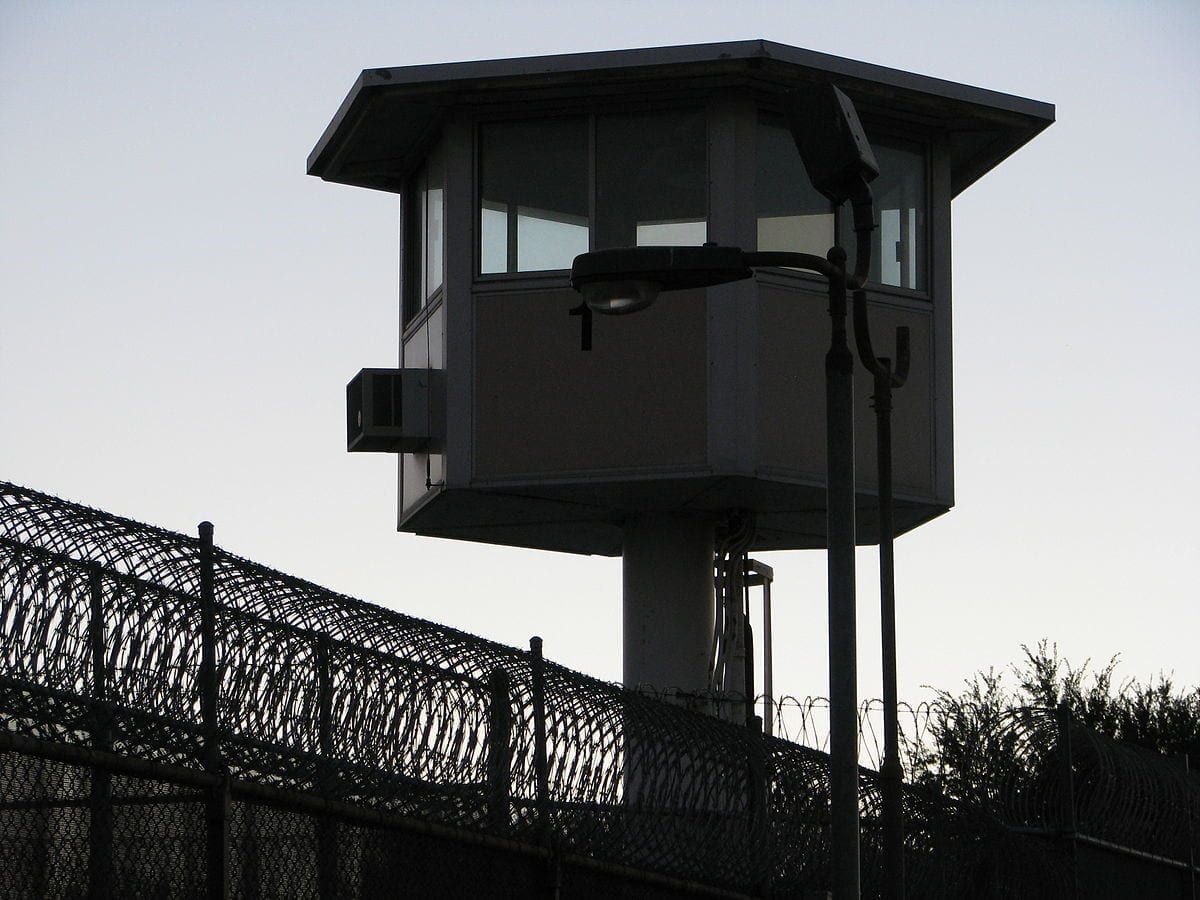Attorneys for the inmates say that Alabama grants fewer prisoners parole on grounds of public safety, while still forcing inmates to work long hours in privately-owned warehouses and fast-food restaurants.
A federal lawsuit filed on Tuesday claims that prisoners across Alabama have been denied parole and forced to work jobs at fast food restaurants as part of a “labor-trafficking scheme” that generates more than $450 million per year in revenue for the state and its corrections system.
According to AL.com, the lawsuit was filed on behalf of ten former and current prisoners, as well as a collection of service industry-related labor unions. It names defendants include Alabama Gov. Kay Ivey, state Attorney General Steve Marshall, a beer distributor, and several private fast-food companies.
The lawsuit explains that, in many cases, inmates are coerced into accepting unpaid positions within prison facilities, enabling the state to save massive amounts of money through the reduction of operating costs and staffing fees. Others say that they feel pressured into working with private companies—including K.F.C., Wendy’s, Burger King, and McDonald’s—which receive significant benefits in the form of a steady, reliable supply of labor.
Attorneys for the inmates claim that the terms of these arrangements resemble “convict leasing,” a system wherein prisoners—almost all of whom were African-American—were once forced to work dangerous, grueling, or otherwise unsafe jobs for private employers throughout the state.
“Labor coerced from Alabama’s disproportionately Black incarcerated population is fuel that fires [the Alabama Department of Corrections’] extremely lucrative profit-making engine,” the lawsuit alleges. “A.D.O.C. enforces express rules that severely punish incarcerated people both for refusing to work and for encouraging work stoppages.”
The lawsuit notes that, over the course of the past several years, Alabama corrections officials have granted fewer and fewer parole approvals, a trend that coincides with a decrease in work-release authorizations.

However, in Alabama’s notoriously dangerous prison system—which has the highest in-custody murder and suicide rates in the country—inmates often rely on work-release as a reprieve from the violence and predation common behind bars.”
“This case seeks to abolish a modern-day form of slavery,” the lawsuit states. “They have been entrapped in a system of “convict leasing” in which incarcerated people are forced to work, often for little or no money, for the benefit of the numerous government entities and private businesses that ‘employ’ them.”
“They live in constant danger of being murdered, stabbed, or raped that is so profound that the federal government has sued Alabama for inflicting cruel and unusual punishment, and if they refuse to work, the State punishes them even more,” the lawsuit says. “They are trapped in this labor trafficking scheme.”
CBS News reports that one of the plaintiffs named in the complaint—LaKiera Walker—served an estimated 15 years behind bars.
While an inmate, Walker worked unpaid jobs at the prison, including housekeeping and truck unloading. She later worked on an inmate road crew, being paid $2 per day, and then at a work-release job that put her on 12-hour shifts in a food company’s warehouse freezer.
Walker said that she and other inmates felt pressured to work, even if they were sick.
“If you didn’t work, you were at risk of going back to the prison or getting a disciplinary [infraction],” Walker said.
Almireo English, a current inmate in a state-run prison, suggested that Alabama has little incentive to approve parole requests when inmates’ unpaid labor is essential to the continued operations of its corrections system.
“Why would the slave master, by his own free will, release men on parole who aid and assist them in making their jobs easier and carefree?” English said, adding that many inmates permitted to work long hours in the private sector are denied parole for posing a “threat to public safety.”
“They work jobs every single day for eight to ten hours, unsupervised,” England said. “So saying [that] they are a threat to public safety is only a convenient excuse to deny them parole.”
AL.com notes that more than 500 companies hold active contracts with the Alabama Department of Corrections. In many cases, inmates are not allowed to refuse work when it is offered, nor may they protest dangerous conditions or long, punishing hours. Inmates who strike or try to engage in work stoppages are often transferred to higher-security prisons and stripped of earned privileges.
The lawsuit claims that Alabama’s practices violate the 13th Amendment to the United States Constitution. It also suggests that, by offering a stream of steady, affordable labor, the Department of Corrections has suppressed wages and thereby made it more difficult for outside labor unions to negotiate better working conditions for their members.
Sources
Alabama’s prison labor program amounts to “modern day slavery,” lawsuit claims
Fast-food chains use Alabama prison inmates as slave labor, lawsuit alleges
Murders, rapes, suicides: Alabama prisons among the most violent in country


Join the conversation!